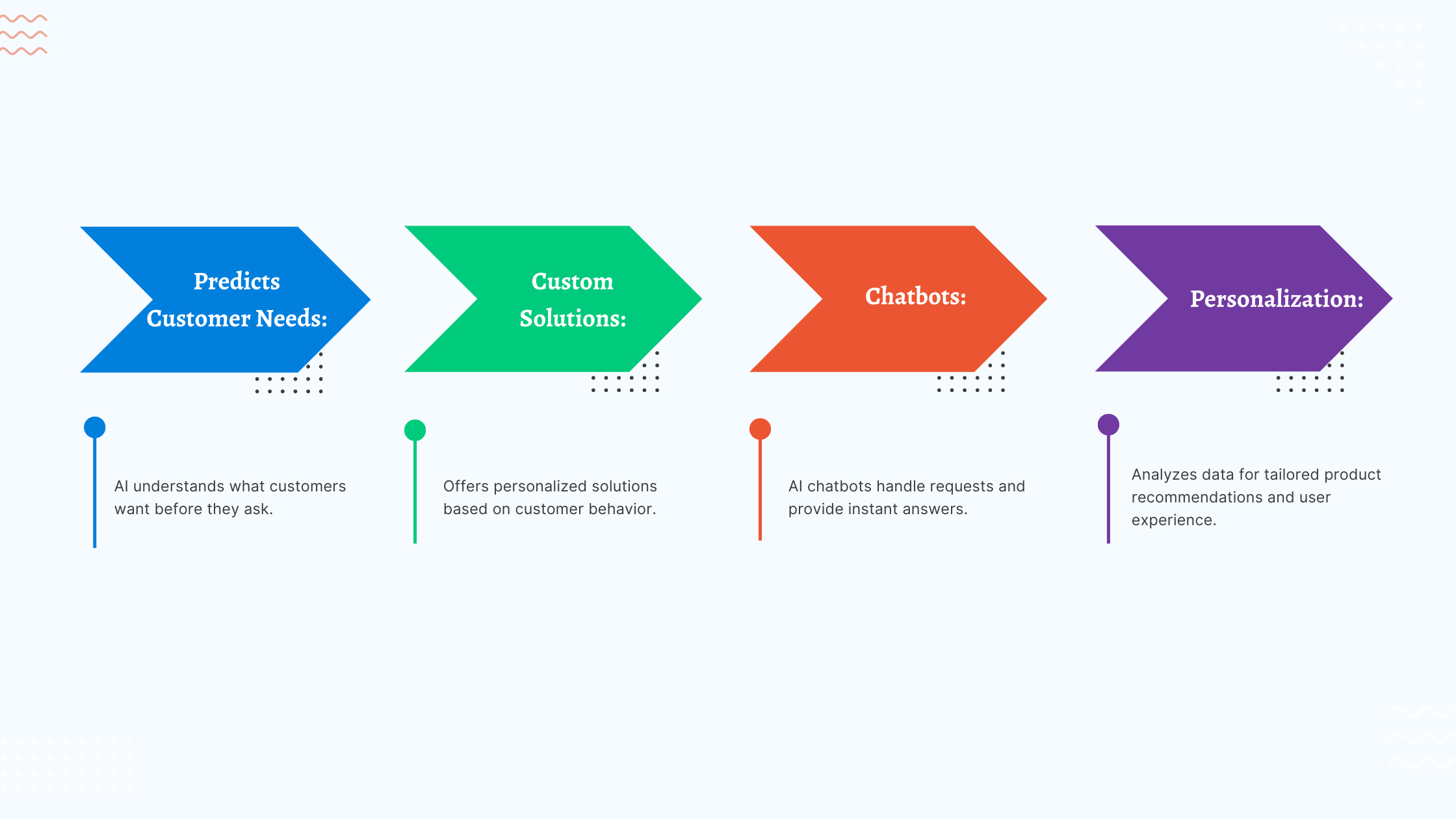Why is Optimize Customer Relationships with AI important?
Artificial Intelligence (AI) has become an essential tool in managing customer relationships. With its large-scale data analysis capabilities, AI offers a strategic approach for businesses looking to stand out in the market. By optimizing resource management, enhancing customer service, and personalizing user experiences, AI serves as a major lever for customer loyalty.
Using AI aims to strengthen the quality of the customer experience and ensure a seamless and consistent interaction. Additionally, it helps ensure compliance with all regulatory aspects, particularly in the sales domain.
How Does AI Optimize Resource Management?
AI plays a crucial role in dynamically transforming resource management. It automates tasks while enabling a more judicious allocation of resources with its analytical and predictive capabilities. By freeing teams from repetitive tasks, AI allows valuable time to focus on high-value missions. This technology also improves inventory management, anticipates future needs, optimizes stock levels, and thus reduces associated costs.
Finally, AI provides insightful vision in human resource management by predicting personnel and skill needs. Forecasting future recruitment, training, and skill development needs gives the company an unprecedented competitive advantage.
What Are the Applications of AI in Customer Relationships?
Artificial intelligence can understand what customers want before they even say it. It excels in analyzing customer behaviors and creates a deep understanding of their needs and expectations. This ability to anticipate requirements allows for offering tailor-made solutions, setting a new standard in customer interaction.
Furthermore, AI-powered chatbots emerge as virtual interlocutors capable of engaging naturally with customers. Though they still have room for improvement, chatbots are a concrete example of AI application in proactively managing requests and providing instant information.
AI also reinvents personalization by deeply analyzing customer data. This detailed analysis feeds into targeted product recommendations and user interface personalization, scrutinizing customer feedback and reviews. This way, the technology identifies service improvement areas and proposes concrete solutions.
Not to forget, the automation of tasks, particularly in processing customer requests, represents another area of AI expertise. This automation enhances service responsiveness, ensuring increased efficiency and optimal customer experience.

How Does AI Personalize Customer Relationships?
AI allows unprecedented personalization of customer relationships, multiplying sales opportunities. This growth stems from leveraging tools such as sentiment analysis and text mining. These technologies enable a deep understanding of consumer sentiments towards the company’s products and services. Once collected, this data is fed into the CRM, enhancing customer relationship personalization. This approach facilitates detecting the true needs of prospects and customers, leading to finely tuned communications and offers.
For instance, if a customer has shown a particular interest in red sports shoes in previous comments, AI can not only identify this preference but also anticipate future needs. Thus, when the customer revisits the site, the user interface can prioritize presenting new versions of red sports shoes or offer personalized promotions on these items.
AI in Customer Support
Integrating AI in customer support represents a significant advancement in operational efficiency and service quality. Rather than seeing AI as mere technology, it should be perceived as a strategic tool that enhances the skills of customer support representatives and optimizes interactions with customers.
AI acts as a collaborator, allowing customer support representatives to fully dedicate themselves to more complex and relational aspects of their job. It excels in quickly analyzing vast datasets, providing real-time information for each interaction.
Hence, AI increases the responsiveness of customer support representatives by anticipating customer needs.


